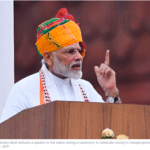Egypt and Jordan have voiced their strong disapproval of Israel’s actions in the ongoing Gaza conflict at a summit held in Cairo. This stance signifies a shift in the attitudes of the two Western allies, which have maintained peace agreements with Israel for several decades, as they increasingly run out of patience with the two-week-long war against Hamas.
Hosted by Egyptian President Abdel Fattah el-Sissi, the summit featured critical statements from both leaders. President el-Sissi vehemently rejected any notion of forcibly relocating Gaza’s 2.3 million Palestinians to the Sinai Peninsula, emphasizing the importance of preserving the Palestinian cause. King Abdullah II of Jordan characterized Israel’s blockade and bombardment of Gaza as a “war crime.”
These statements reflect the growing frustration and anger in the region, even among nations that have maintained close ties with Israel and have often played a mediation role in conflicts. The Gaza conflict, ignited by a massive Hamas attack, has now entered its third week, with casualties mounting and no clear resolution in sight.
Egypt, in particular, is deeply concerned about a potential influx of Palestinians crossing into its territory, which could undermine the prospects of a future Palestinian state. Ambiguous remarks from some Israeli figures suggesting that people leave Gaza have raised alarm among neighboring countries, as have Israeli orders for Palestinian civilians to move southward, toward Egypt.
President el-Sissi stressed Egypt’s strong opposition to the forced displacement of Palestinians to Egyptian lands in Sinai. He reiterated that the liquidation of the Palestinian cause without a just solution is unacceptable and will not happen at Egypt’s expense.
King Abdullah echoed a similar sentiment, expressing unequivocal rejection of the displacement of Palestinians. Jordan already hosts the largest number of displaced Palestinians from previous conflicts. He labeled the actions in Gaza as a war crime under international law and a red line for all.
Palestinian President Mahmoud Abbas, the leader of the Palestinian Authority in the West Bank, called for an end to Israel’s aggressive actions in Gaza. He also warned against any attempts to push Palestinians out of the region, affirming their determination to stay in their land.
The Gaza conflict has left many questions unanswered about Israel’s objectives and future plans. Israeli Defense Minister Yoav Gallant outlined a three-stage plan, including airstrikes, presumed ground operations, and the establishment of a new security regime in Gaza. However, the question of who would govern Gaza after Hamas remains unresolved.
In the midst of these developments, Israel has ordered over half of Gaza’s population to relocate from the north to the south within the sealed-off territory, effectively directing hundreds of thousands of Palestinians toward the Egyptian border.
This situation has raised concerns that Israel’s ambiguity on the matter could strain its crucial relations with Egypt, which has been a significant partner in regional peace efforts. Egypt is apprehensive that a mass exodus could bring militants into Sinai, posing a security threat and endangering the peace treaty between the two countries.
Arab nations are also wary of a repeat of the mass displacement of Palestinians during the 1948 war surrounding Israel’s establishment. The exodus of some 700,000 Palestinians, often referred to as the Nakba or catastrophe, remains a pivotal event in the region’s history.
Beyond concerns about displacement, the leaders at the summit condemned Israel’s airstrikes in Gaza, citing a significant loss of life, including many civilians. Israel contends that it is targeting Hamas installations and adhering to international law.
As the Gaza conflict continues, it is evident that the region is experiencing heightened tensions and frustration. The international community faces calls for action to address the immediate humanitarian needs of those affected by the conflict. The situation underscores the urgency of finding a resolution to the long-standing Israeli-Palestinian conflict, as regional voices grow increasingly critical of the ongoing violence.














